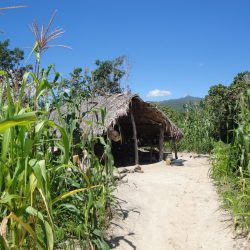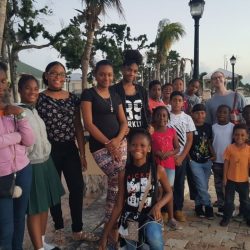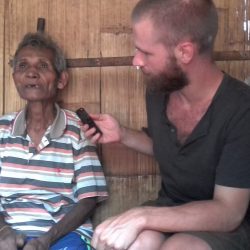Creoles, fieldwork and linguistic theory – an interview with Peter Bakker
Photo: Peter Bakker with a speaker of Yamomami in Brazil
Peter Bakker is a Dutch-born linguist who is active in a number of different linguistic fields, chief among which pidgins and creoles, mixed languages and contact-induced language change. He has also published extensively on Romani linguistics. He is the author/editor of numerous books, which include A Language of Our Own: The Genesis of Michif, the Mixed Cree-French Language of the Canadian Métis (1992), Bibliography of Modern Romani Linguistics (1997, with Yaron Matras), The Typology and Dialectology of Romani (1997, co-edited with Yaron Matras and Hristo Kyuchukov), and Contact Languages: A Comprehensive Guide (2013, co-edited with Yaron Matras; paperback 2016). Some of his other interests include genderlects, language genesis and the … ↪







